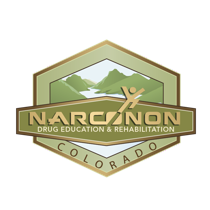The Benefits of Exercise in Addiction Recovery

When a person is drinking regularly and using drugs they aren’t very likely to be exercising a whole lot. Between getting high or drunk and going through withdrawal or having a hangover it’s a little difficult to make time for a good workout here and there. Mostly because who wants to exercise when they are high or hungover? Add in the cost of a gym membership which would divert money away from using and it’s pretty safe to assume that most people in active addiction aren’t gonna be working out a whole lot. Like anything else, there are always exceptions, but it’s pretty safe to assume exercise is not on the top of the priority list for someone who is addicted to drugs.
Because drugs and alcohol are often used as a means to self-medicate and escape from reality it becomes very important for someone who is in addiction recovery to develop some healthy coping mechanisms. Exercise can be a great tool for those who are in recovery for many reasons.
Improved Sleep
Exercising regularly leads to improved sleep. When a person sleeps better and feels more rested their overall quality of life improves.

Exercise Can Help You Feel Better
The process of working out releases several chemicals in the brain that help a person feel better. Endorphins, serotonin, and dopamine are all released during exercise and help to generate an overall sense of well-being.
Exercise Helps Heal the Body
Regular exercise improves cardiovascular health which leads to a decreased risk of developing hypertension, high cholesterol, and heart disease. Exercise boosts the immune system and has been shown to help improve mental health and reduce the risk of developing Alzheimer’s later on in life.
Working Out Regularly Takes Up Time
During addiction recovery, it is usually a good idea to stay busy, especially in the beginning stages. Exercising regularly is a great way to keep busy.
Regular Workout Routines Provide Structure
A life of active addiction usually does not contain much structure. An important aspect of recovery is developing healthy habits and routines.
Exercise Is a Healthy Coping Mechanism
Not only does exercise help reduce stress, but it is also a healthy way to deal with it. A person will feel much better after going to the gym to work through their stress than they would the morning after drinking.
Working Out Helps Improve Self-Confidence
Another added benefit of exercise is an improved sense of self-confidence. When people take good care of their body they generally feel better about themselves than when they don’t.

It’s a Good Way to Meet People in a Sober Environment
It can be difficult to meet new friends in early recovery. Going to a gym or participating in sports is a great way to meet people without drinking or using drugs.
Fitness Classes and Sports Teams Provide a Sense of Camaraderie
There is nothing quite like the feeling of being on a team or accomplishing something challenging with a group of other people. While being fun it also helps bring people together.
Increased Success Rates for Living a Sober Life
Studies have shown that people in addiction recovery who exercise regularly have higher success rates of living a sober life. When taking into consideration that regular exercise helps with stress reduction, improved sleep, an increased sense of well-being and overall health,
it comes as no surprise that it has the ability to help someone maintain their sobriety.
Resources:


